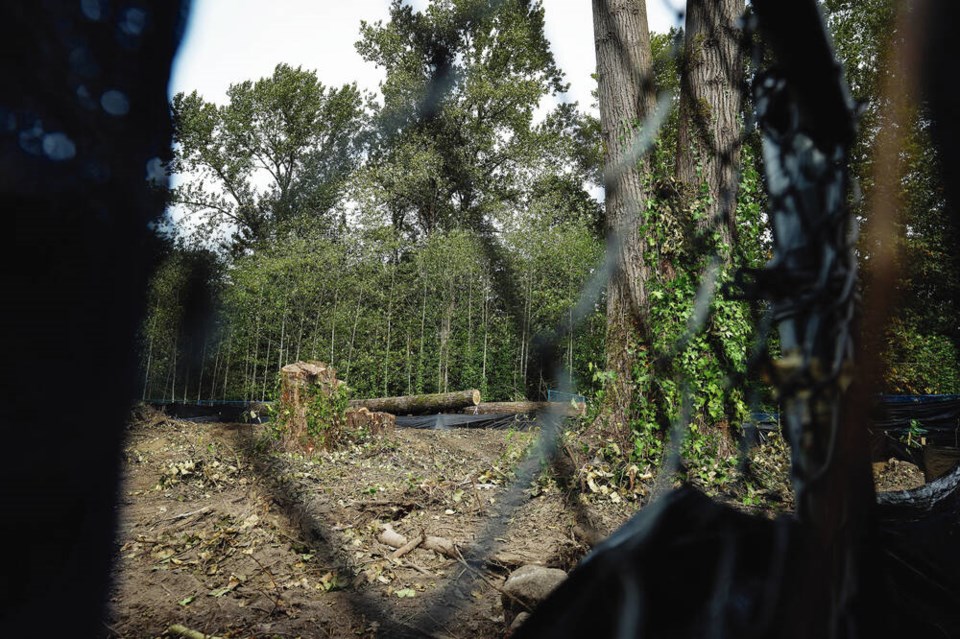The Intergovernmental Panel on Climate Change just released its synthesis report, summarising the three volumes of its sixth Assessment Report. It found, with very high confidence, that:
• Climate change is a threat to human well-being and planetary health.
• There is a rapidly closing window of opportunity to secure a liveable and sustainable future for all.
• Risks and projected adverse impacts and related losses and damages from climate change escalate with every increment of global warming.
• Deep, rapid and sustained mitigation and accelerated implementation of adaptation actions in this decade would reduce projected losses and damages for humans and ecosystems.
So what does the B.C. government do in response? It continues to support new fossil fuel infrastructure, while still vainly proclaimimg it can meet its emissions targets. It has just approved the Cedar LNG plant while, at the same time, announcing plans to reduce emissions from the fossil fuel sector.
Yet in May 2021 the International Energy Agency stated “the global journey to net zero by 2050 … includes, from today, no investment in new fossil fuel supply projects”, while in April 2022 UN Secretary- General Antonio Guterres said: “Investing in new fossil fuels infrastructure is moral and economic madness.”
Or as Martyn Brown, former chief of staff to Liberal premier Gordon Campbell, put it during CBC Radio‘s On The Island on March 17: “This is the government sucking and blowing at the same time on climate action.”
After all, it was David Eby himself who stated in the weeks before he was sworn in as premier that “we cannot continue to expand fossil-fuel infrastructure and hit our climate goals.” So, as Green Party MLA Adam Olsen pointed out: “Announcing a plan to reduce climate pollution from LNG facilities on the same day as approving another LNG project doesn’t make sense.”
The Cedar plant will not only increase emissions in B.C., it will also benefit from the incentives offered to the LNG industry by the B.C. government. As tallied by Marc Lee, senior economist at the Canadian Centre for Policy Alternatives in July 2018, these include “eliminating the LNG income tax, a lower price for B.C. Hydro electricity, exemption of the provincial sales tax on construction materials and a rebate on new carbon taxes.”
Another reason for concern was touched on by Olsen in noting that the Cedar LNG plant is a partnership with the Haisla Nation. While agreeing that it is “a significant opportunity for economic reconciliation”, he added: “It is concerning that the B.C. NDP is using that opportunity to disguise the fact that they are creating new fossil fuel projects.”
Indeed, far from welcoming the announcement, the Union of B.C. Indian Chiefs expressed concern. Grand Chief Stewart Phillip, the union president, called the announcement of “the expansion of the LNG industry and associated fracking … frightening.”
B.C. is not alone in this behaviour. The federal government has a long history of sucking and blowing on fossil fuels. In June 2018, Parliament passed a resolution declaring a climate emergency, and the very next day approved the expansion of the Trans Mountain pipeline expansion (TMX), which ships bitumen from the Alberta tarsands for export to Asia.
When it became clear the private sector was not dumb enough to continue investing in Trans Mountain, the federal government went ahead and purchased it. Initially priced by Justin Trudeau at $7.4 billion to complete, it is now up to $30.9 billion.
Back in October 2022, when the price tag was only $21.4 billion, Robyn Allan, a former CEO of ICBC, in a report for West Coast Environmental Law, found oil producers would be paying tolls well below the true cost and that “the federal government will forgive $17 billion in debt Trans Mountain owes to Canadians.”
So we are subsidising LNG and are stuck with a pipeline that will never make a profit. Environmental reporter Andrew Nikiforuk summed it up well in the Tyee this month; this amounts to “the transfer of billions of dollars from ordinary Canadians to wealthy oil companies,” while expanding fossil fuel production that results in climate chaos. Moral and economic madness indeed.
Dr. Trevor Hancock is a retired professor and senior scholar at the University of Victoria’s School of Public Health and Social Policy.



